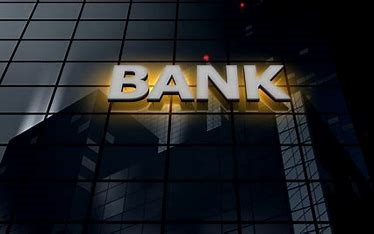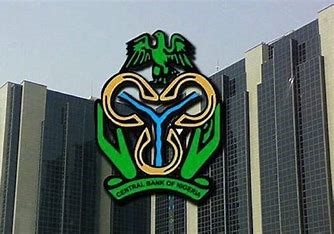Some minority shareholders are demanding an investigation into the management and directors of the defunct Heritage Bank.
They voiced their concerns after the Central Bank of Nigeria revoked the bank’s license. The CBN stated that the license was revoked immediately due to the bank’s violation of Section 12 (1) of BOFIA, 2020. According to the CBN, the board and management failed to enhance the bank’s financial performance, posing a risk to financial stability.
“This follows a period during which the CBN engaged with the bank and prescribed various supervisory steps intended to stem the decline. Regrettably, the bank has continued to suffer and has no reasonable prospects of recovery, thereby, making the revocation of the license the next necessary step.”
Subsequently, the Central Bank appointed the Nigeria Deposit Insurance Corporation (NDIC) as the liquidator for Heritage Bank, in accordance with Section 12 (2) of the Banks and Other Financial Institutions Act (BOFIA), 2020. This move was intended to oversee the orderly winding up of the bank’s affairs and protect depositors.

Boniface Okezie, the National Coordinator of the Progressive Shareholders Association, expressed in an interview with The PUNCH that initiating an investigation into the bank’s managers would help restore and bolster confidence in the banking sector. He emphasized that holding those responsible accountable is crucial for maintaining trust and stability within the financial system, particularly among shareholders and customers affected by the bank’s failure.
He stated that the Central Bank of Nigeria (CBN) is partly to blame for the issues within the system. According to him, if the bank had been insolvent for years and was dependent on the CBN’s leniency, the CBN should have intervened sooner. He questioned the role of the Asset Management Corporation of Nigeria (AMCON), suggesting they should have taken over the bank since it was also paying levies to AMCON. Instead, the CBN directed the Nigeria Deposit Insurance Corporation (NDIC) to handle the liquidation, which he criticized as the wrong approach.
He pointed out that a depositor with N20 million in the bank might only receive N5 million until the bank’s assets are assessed and liquidated, which he deemed unfair and likely to discourage people from using banks. He also raised concerns about the insolvency of other banks, questioning their strength and viability. He emphasized that the management of Heritage Bank should be held accountable and questioned about the bank’s collapse, arguing that simply liquidating the bank through the NDIC is insufficient.
Okezie emphasized that in other countries, managers and directors would be held responsible for such failures. He insisted that there must be an investigation to recover depositors’ funds and assess the bank’s remaining assets. He called on the CBN to conduct a thorough probe into the bank’s collapse to provide lessons for the future, stressing that the current approach is inadequate and that decisive action is necessary to address the issue.
Similarly, Moses Igbrude, the National Coordinator of the Independent Shareholders Association of Nigeria, argued for a thorough investigation into the bank’s management. He warned that without accountability, similar incidents could recur. Igbrude urged for a detailed inquiry to understand the circumstances leading to the bank’s failure, highlighting the need for lessons to prevent future occurrences.

Igbrude acknowledged that the regulator’s decision to liquidate the bank was within its legal mandate but expressed concern over the delay in reaching this decision. He stressed the importance of timely intervention in such cases to protect the interests of depositors and maintain confidence in the banking sector.
“The CBN is the regulator, empowered by law to supervise, to know which bank is healthy and which is not, so they are just doing their job. However, why did it take so long to do what is necessary?
“Also, they had another option to rescue the bank, remove the management, and put in place a CBN-led management to ensure it is standing and no one loses anything. At the end of the day, they sell it to Nigerians. This option would retain the employees.
It was an option but they decided to revoke the licence,” he said.
He continued by questioning the circumstances leading to the bank’s collapse: “What went wrong? Were the managers not performing their duties properly? Did they issue loans that defaulted? The CBN hasn’t provided these details. In a situation like this, I would have preferred the alternative I mentioned earlier, as it would have mitigated the negative perception people have now.”
Bisi Bakare, President of the Pragmatic Shareholders Association, commented that the CBN’s decision was appropriate under the circumstances. She noted that while the depositors have some level of protection, the shareholders are the ones who will bear the brunt of the bank’s failure. Bakare’s remarks underline the CBN’s responsibility to safeguard depositors’ interests, even if it means shareholders face significant losses.
Sources
- https://dailypost.ng/2024/06/06/i-have-over-n100m-in-heritage-bank-mercy-eke-cries-out/
- https://www.premiumtimesng.com/news/top-news/701147-heritage-bank-customers-throng-headquarters-for-payment.html
- https://punchng.com/heritage-bank-shareholders-push-for-md-eds-probe/#:~:text=Regrettably%2C%20the%20bank%20has%20continued,2)%20of%20BOFIA%2C%202020.
- https://pmnewsnigeria.com/2024/06/06/revocation-of-heritage-banks-licence-will-stabilise-financial-system-experts/?amp=1




